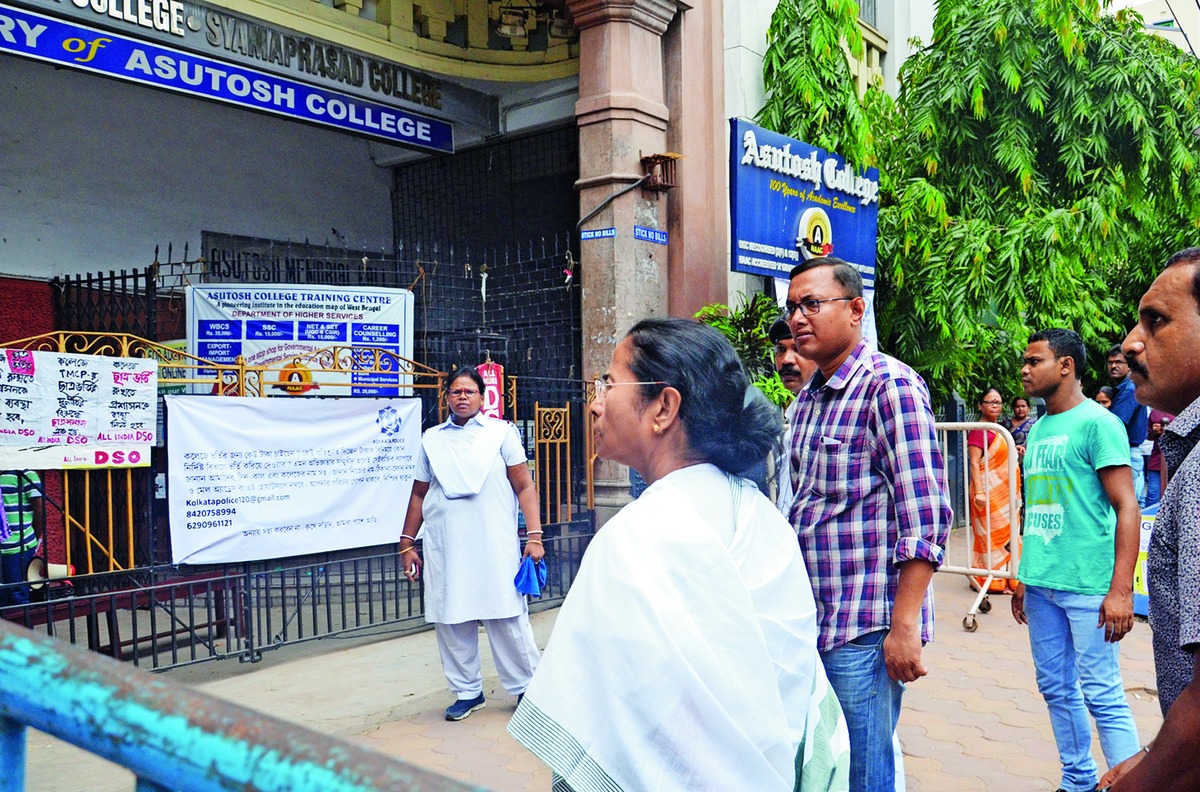
Calcutta: The Mamata Banerjee government had taken the admission process in undergraduate colleges online two years ago to put an end to allegations about candidates being forced to pay student unions for seats and undeserving students often making it at the expense of the meritorious ones.
A couple of admission seasons later, complaints about members of unions extorting money have been reported from several institutions, including Asutosh College, Maulana Azad College and Goenka College of Commerce and Business.
Students across campuses said the entry price for a popular course can go up to Rs 1 lakh, especially if a candidate does not have the scores to match the aspiration.
So, what allows the racket to thrive despite the online system supposedly containing safeguards against external manipulation? Metro pits theory versus reality.
Step I: Candidates are required to submit their application forms online before the last date specified by the institution. The software is designed to accept an application only if scores, personal particulars and other information are properly entered.
Most colleges require candidates to upload their scanned mark sheets to complete the process of applying for admission.
Reality: This procedure is followed uniformly.
Step II: The application fees needs to be paid through select banks linked to online gateways. Colleges start preparing the merit list after scanning the mark sheets and matching the scores with the data mentioned in the application forms. It is common to find students entering higher scores while submitting the forms online. In some cases, these are unintentional errors. If there is a mismatch, some colleges usually call the students for original documents while others reject such applications.
Reality: This procedure is followed in almost every college.
Step III: If a student applies for admission to three courses and qualifies for all three, an in-built mechanism enables the college to conduct online counselling and allow the candidate to pick one. Online counselling is done so that a student does not have to visit his or her college of choice till the admission process is over.
The idea of a completely online admission process that does not require the candidate to be physically present is meant to insulate them from any attempt to extort money.
Reality: In most colleges, the stipulated online admission process is adhered to till the merit lists are published. A selected student is asked to visit the campus for counselling.
Complaints have been pouring in this year about candidates across colleges being approached by members of the student unions posing as volunteers. If a candidate discloses that he or she has had to settle for a course that wasn't the first choice, it almost immediately invites an offer of help in exchange for cash.
"I applied for history and philosophy honours, but my first preference is history. Since my name does not figure on the history merit list, I made up my mind to study philosophy. I was surprised when some union members approached me and promised to arrange a seat in the history course if I paid Rs 25,000," said a student in a Bhowanipore college.
Another student said she had applied for English and history in a north Calcutta college, with her first preference being English. "My name is on the second list for English, so the union members have promised me a seat for Rs 65,000."
Step IV: Once a student gets selected for a course and confirms acceptance, the admission fee needs to be paid online.
Reality: In several colleges, students are either required to deposit the admission fees offline or visit any of the designated banks. "I was stunned to find union members even at the bank. They were approaching applicants with the offer of admission assistance," a student said.
Step V: Selected students receive their roll numbers and information about sections and date of commencement of classes through an automated messaging system. Final verification of documents is supposed to be done when a student visits the campus on the day of commencement of the course. In the event of admission being cancelled for any reason, the admission fee is to be refunded.
Reality: Verification of documents is done much before the commencement of classes in most colleges, leaving the door ajar for student unions to make their entry.
A senior official of Calcutta University did not rule out the possibility of detailed information about the candidates, including their addresses and phone numbers, being leaked to the union members so that they can establish contact and attempt to strike deals. "It is not possible for union members to know the details of candidates unless they have access to official documents pertaining to admissions. We are trying to find out from where the information leaks."










